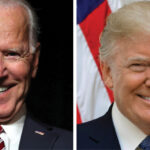The United States of America (USA) mainstream media played a crucial role in the recent presidential election, which saw Donald J. Trump emerge as the winner. How they chose to use their platforms will be a topic of debate for decades to come. The shift in journalism took a radical turn during Trump’s first term, with traditional media portraying him as a racist, fascist dictator—a narrative that gained traction worldwide, especially in developing countries.
Unbeknownst to the public, who were largely passive consumers of what was once trusted US media, Trump was standing in the way of a deeper socio-cultural agenda. Sadly, this agenda has gained traction worldwide. During the Obama administration, the US government allegedly pressured African leaders to adopt elements of this radical ideology in exchange for economic aid. Although many African leaders resisted, the influence of these ideas has continued to spread, especially among the younger generation. This shift suggests that while traditional values may still hold in certain regions, global cultural tides are rapidly transforming perspectives and social norms.
Is the media’s portrayal of Trump the first instance of biased reporting by the American press? Certainly not. We have seen this before: the media’s negative framing of Muslims as “terrorists” or the tendency to blame Black people in cases of police violence. The facade fell, however, when former President Joseph Biden’s cognitive decline became undeniable, exposing the mainstream media’s efforts to protect him. Although social media and some independent sources had raised concerns about Biden’s health, the mainstream press largely chose to ignore or cover it up until it was impossible to do so.
Control over the narrative is not limited to traditional media. Those behind mainstream outlets have extended their influence to social media, which is dominated by entities aligned with their ideology. This power was mobilised to promote Vice President Kamala Harris, with support from Hollywood celebrities, religious leaders, and civil rights activists. Even former President Jimmy Carter—whose legacy is fiercely guarded—was invoked as a supposed supporter of Harris. The push for Harris’ candidacy was also led by Barack Obama, who was instrumental in gathering influential figures to support her.
- Rescue our children, parents of stranded Zamfara students in Cyprus beg Gov Lawal
- US ELECTION: Trump wins Arizona, completes sweep of swing states
Why would the US media, celebrities, and prominent politicians go to such lengths to promote Harris? Why would Trump be subjected to more than one alleged assassination attempt? The answer lies in the radical gender ideology permeating today’s social fabric. But why would individuals and groups promote an ideology that is evidently divisive?
It is worth noting that former President Barack Obama initiated this nearly successful social transformation. As the first Black president, with an immigrant father from Africa, his rise symbolised the realisation of Dr Martin Luther King Jr.’s dream. He seemed ideal for the role, and his actions initially garnered widespread support. However, when he steered towards more radical ideologies, some Americans took notice. Under the Biden administration, this ideology has found its way into schools, where children are being exposed to explicit material and gender-related content in an unprecedented manner.
Strict “cancel culture” policies quickly silenced those who raised concerns about children’s safety or who voiced traditional perspectives on gender. Words like “he” and “she” became politically fraught in public discourse. Universities and professional fields were soon flooded with new rules on acceptable language and ideas. Researchers and respected academics were forced to conform or risk being marginalised, “cancelled,” and silenced for speaking out.
Why is the media—the supposed voice of the common person—embroiled in this? It is because those promoting these ideologies either control the media directly or have close ties to those who do. As the Canadian media theorist Marshall McLuhan famously said, “The medium is the message.” Over the past 16 years, influential figures in American society have successfully used the media to push divisive agendas.
Trump has withstood attacks, endured hate speech, and emerged as America’s 47th president, an accomplishment that might be seen as his “third election,” one of which he believes was stolen. Now, what will the biased media try to sell to Americans and the world? Are they prepared with new layers of deception we have yet to see? What does skewed media mean for the future of journalism? These are the questions we should contemplate as the US steps back from a volatile social landscape shaped by politicians with polarising ideologies.
Israel Ayegba Ebije can be reached via [email protected]

 Join Daily Trust WhatsApp Community For Quick Access To News and Happenings Around You.
Join Daily Trust WhatsApp Community For Quick Access To News and Happenings Around You.


